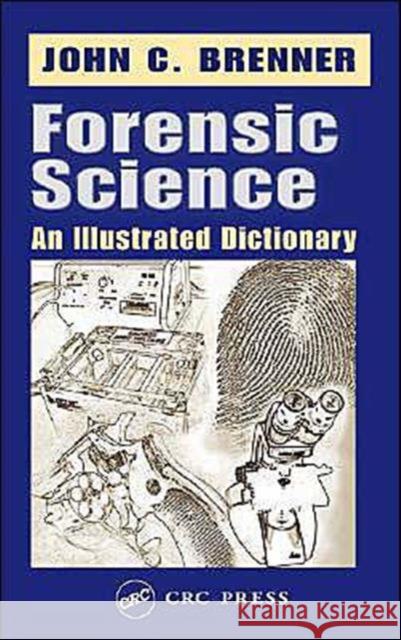Forensic Science: An Illustrated Dictionary » książka
Forensic Science: An Illustrated Dictionary
ISBN-13: 9780849314575 / Angielski / Twarda / 2003 / 296 str.
Investigators, prosecutors, defense attorneys, professionals within the field of law enforcement, and other criminal justice personnel need to understand forensic terms when communicating with forensic scientists or interpreting forensic lab results.
Forensic Science-An Illustrated Dictionary introduces commonly-used forensic terms, many of which are crucial to the interpretation and understanding of laboratory report findings.
The field of forensics grew considerably since the publication of the previous version of this book, the Forensic Science Glossary. With the introduction of new procedures and methods of analysis, many new terms have emerged. This volume adds many of the new terms used in criminal court cases, forensic entomology, forensic psychiatry, crime scene reconstruction, and other forensic disciplines.
The definitions and accompanying illustrations come from various domains including toxicology, drug chemistry, criminalistics, bioscience/DNA, firearms/ballistics, forensic pathology, and the legal system. The illustrations communicate the use of laboratory instruments, investigative techniques, and laboratory methods of analysis.
These detailed definitions and illustrations are valuable references to students and nonscientific professionals including police investigators interpreting lab reports, court reporters, prosecutors and defense attorneys preparing for trial.
About the Author
John C. Brenner earned a B.S. in Health Care Administration from the University of Southern Illinois while serving full time in the U.S. Navy. Upon completion of his naval career he received an MS in Forensic Science from the University of New Haven. He is a member of the Northeastern Association of Forensic Scientists (NEAFS). Mr. Brenner has spent 20 years as a forensic scientist with the New York State Police, and is trained in toxicology, serology, and DNA analysis. While providing testimony for more than 160 criminal court cases including homicides, rapes, blood assaults, burglaries, and DWIs, the author developed the idea for the first book, Forensic Science Glossary.
Creating Forensic Science - An Illustrated Dictionary is one way of giving something back to the forensic community for the knowledge and experience he has gained working in the field of forensics.











